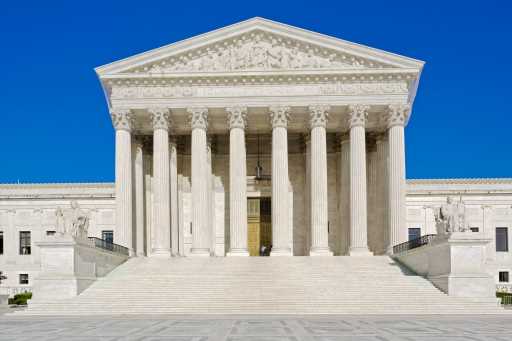Supreme Court Rejects Theory That Would Have Given State Legislatures Nearly Unchecked Power Over Rules For Federal Elections
The Supreme Court on Tuesday ruled that state courts had oversight over a legislature’s election laws, rejecting a controversial theory that state lawmakers had nearly unchecked authority over the rules for congressional and presidential races.
The 6-3 ruling (read it here) was in a case over how Republicans in the North Carolina legislature drew congressional maps in the party’s favor. They had argued that the Constitution’s Elections Clause gave them the power to set election rules without state oversight of their compliance with the state’s constitution.
Related Story
Supreme Court Sides With Photographer In Copyright "Fair Use" Dispute Over Andy Warhol's Prince Portrait
“The Elections Clause does not insulate state legislatures from the ordinary exercise of state judicial review,” Chief Justice John Roberts wrote in the majority opinion.
The case of Moore vs. Harper had been closely watched by election lawyers and scholars given the aftermath of the 2020 presidential race. There were worries that a high court ruling would leave state legislatures with sweeping authority to determine congressional maps, exacerbating partisan gerrymandering. There also was alarm that if the high court accepted the “independent legislature theory,” legislatures could override voters choices of presidential electors, although some legal scholars argued that other protections are in place.
Former President Barack Obama responded to the ruling, writing on Twitter, “Today, the Supreme Court rejected the fringe independent state legislature theory that threatened to upend our democracy and dismantle our system of checks and balances.”
Former California Governor Arnold Schwarzenegger filed an amicus brief in the case, with his attorneys writing that the independent state legislature theory “would eliminate state efforts to curtail partisan gerrymandering, imperiling the checks and balances needed for a functioning redistricting process that places voters’ interests over legislators’.”
In his majority opinion, Roberts wrote, “State courts retain the authority to apply state constitutional restraints when legislatures act under the power conferred upon them by the Elections Clause. But federal courts must not abandon their own duty to exercise judicial review. In interpreting state law in this area, state courts may not so exceed the bounds of ordinary judicial review as to unconstitutionally intrude upon the role specifically reserved to state legislatures by Article I, Section 4, of the Federal Constitution.”
Must Read Stories
Ron DeSantis Seeks Dismissal Of Disney Lawsuit, Claims Immunity From Litigation
Spotlight Back On Toon Scribes’ Challenge To Be Covered By Writers Union
Factions Form Unity Slate To Re-Elect Drescher & Fisher In Rare Show Of Solidarity
Docs Reveal Talks With Government On Day Gary Lineker Was Suspended; Crisis Timeline
Read More About:
Source: Read Full Article





